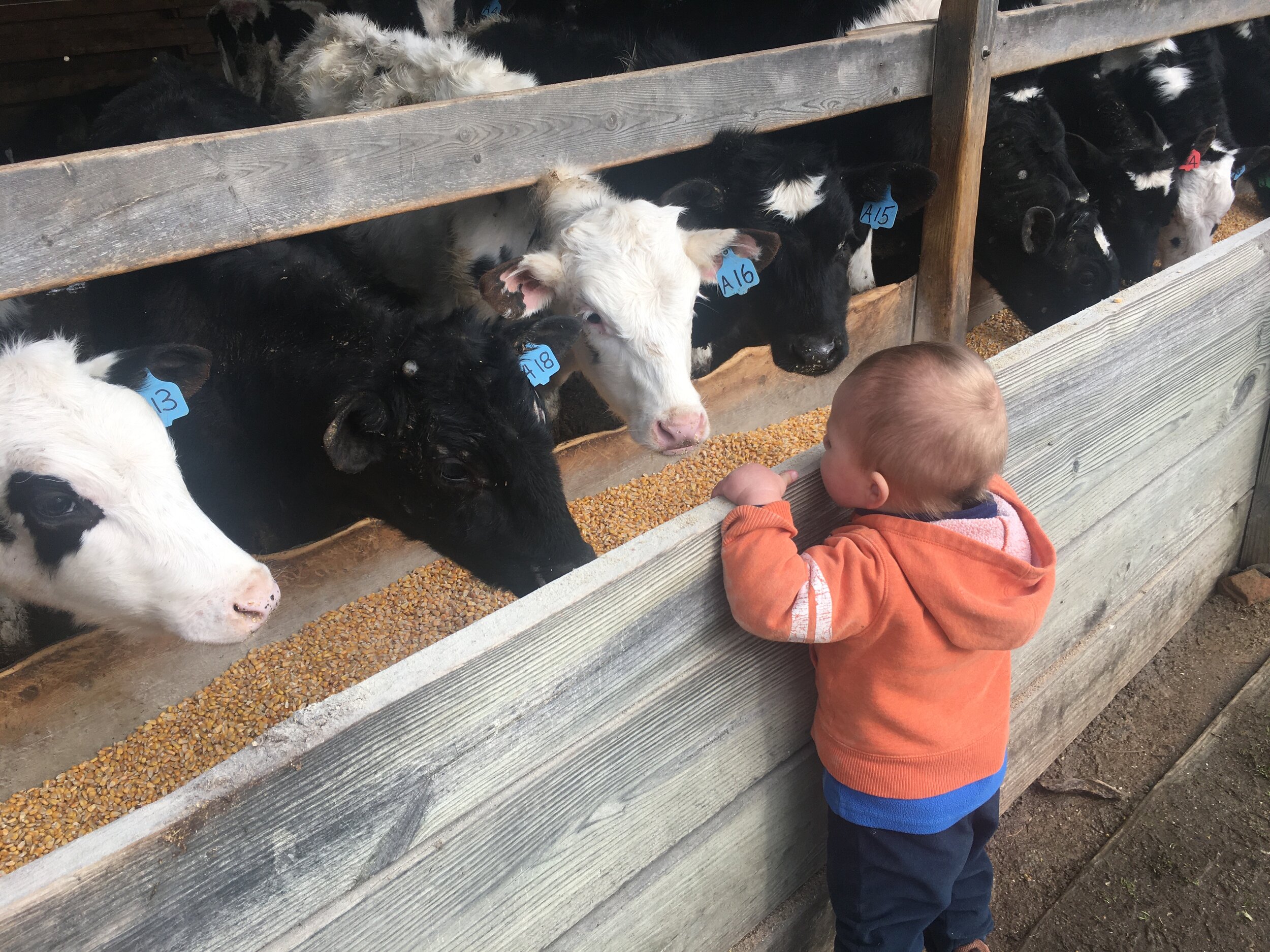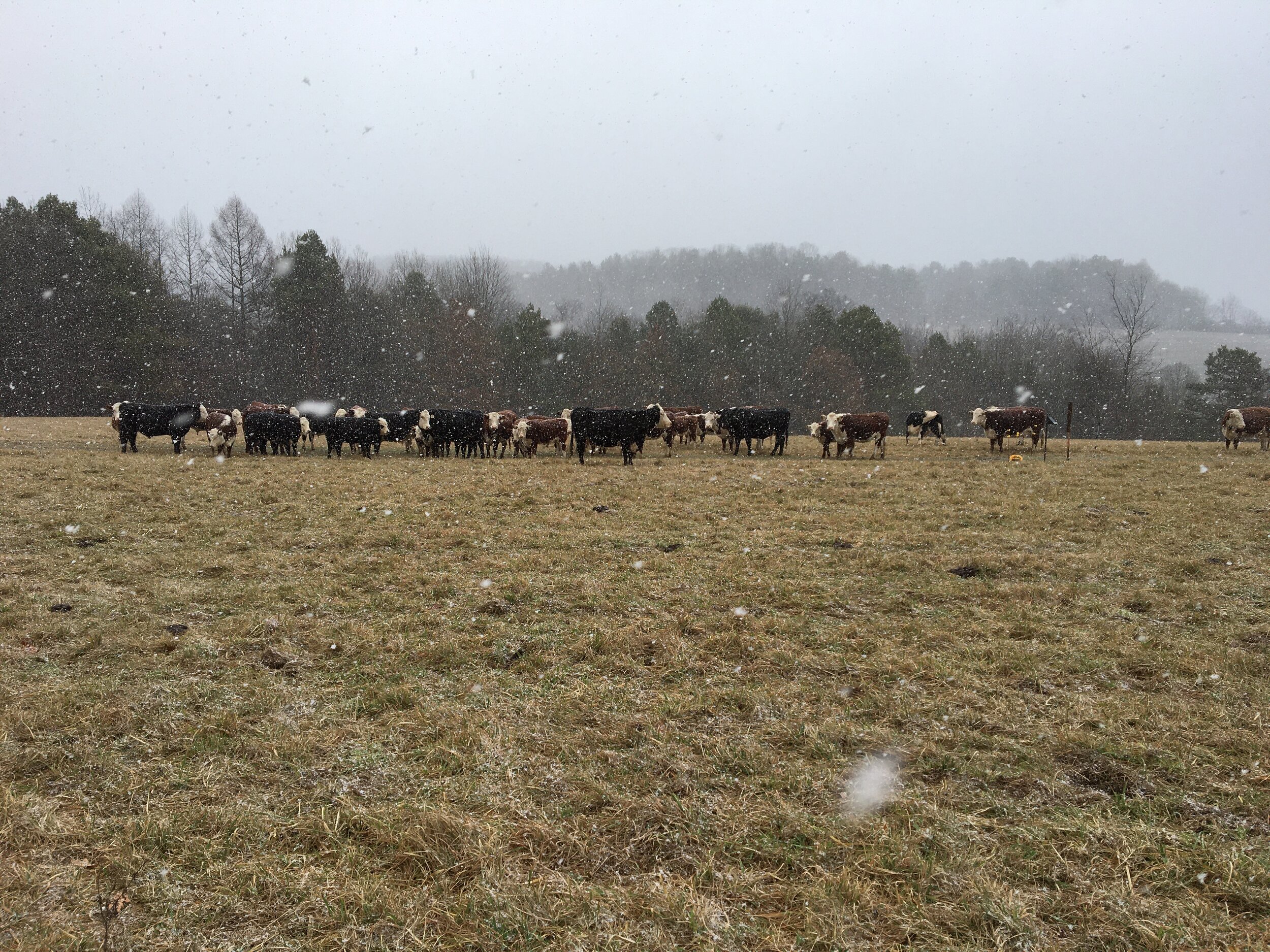Reprioritizing...
What is a farm worth?
For most people, farms aren’t worth anything; at best they’re grounds for petting zoo entertainment, at a glance they’re open tracts of land with tractors, and at worst they’re the useless and annoying stomping grounds of simple minded people who cannot guff it in the modern world.
Yes, that’s a harsh review. I am willing to bet it’s remarkably accurate; would you brag to your lawyer friends if your son or daughter wanted to go full-time into farming? Didn’t think so.
I never thought the opportunity to would arise to get the attention of everyone all at once, but it happened. Suddenly sports, politics, and pop culture aren’t quite as interesting because we’re all thinking about the well being of our family.
During such meditative moments it’s possible to encourage inspirational thinking. Consider everything you’ve read and heard on the news, and then ask yourself very seriously: are you more inclined at this second to see what features the next iphone will offer, or would you rather have an understanding of the food inventory in your hometown?
Suddenly farms seem much more important, do they not? Let’s talk.
‘Farms’ is too broad a category; specifics are necessary to fully appreciate the value of food land.
Proximity is important: you can walk or drive to a nearby farm, but I doubt you’ll easily make it to the food manufacturing facility in Chicago.
Marketing style makes a huge difference: most farmers produce a raw material that will be shipped away for processing. In other words, if you visit a commodity farm, even a close one, you’ll not find a lot to eat. So a very valuable farm has an existing food sales platform that’s designed for you, the eater.
Livestock are invaluable. A living animal is nutrient-dense, portable, fertilizer creating, vegetation pruning, self duplicating protein that does not require refrigeration. Do you get that? Let’s pretend we’re in full-blown end-of-days type stuff. Refrigeration no longer exists. Beef in a living cow stays fresh until harvest. The cow will produce more cows. The cow will eat grass, which you could never survive on in the first place. And if you’re displaced, the cow can walk along with you. Try any of that with society’s newest darling, fake meat: ain’t gonna happen.
A farm that respects the water cycle is important. Ponds collect and save surface runoff for later use as crop irrigation water or livestock hydration. We have several ponds that I rely on heavily; I’m dying to build more to save additional water. They’re expensive to create, but last forever once they’re in. Which is worth more? Cell phone plan or guaranteed food? Wireless companies can go without. Keep buying beef.
The workforce is important on a valuable farm. Too many commercial farms are operated by as few people as possible. When crisis strikes, the workload easily overwhelms the workforce. At our farm we’re doing everything we can to bring more people in. Many hands ensure the work being done is accomplished effectively. We have a lot of hands on deck that can be called into action in a moment’s notice. Good, productive people alleviate bad situations.
More people add more diversity. Diversity is a key component of a valuable farm, because diversity is a key component of a healthy diet. Vegetable production has gradually been introduced to our operation, and 2020 will add even more diversity to the Clarion Farms lineup. We’re excited.
Valuable farms, too, respect the mineral cycle. Minerals are crucial for life. I believe compost fertilizer is the best method to mineralize soils in order to produce richer foods. By utilizing waste products to create compost, we’re ensuring that our fertility program is developed in-house. Disruptions in China are expected to affect commercial fertilizer availability to farmers in the US this year; would you rather rely on someone who relies on the global supply chain or partner with a neighbor who is immune to supply chain turmoil?
This list could go on for days. I assume you get the point: proximate farms designed to specifically for local food supplies are so much more important than anything else we tend to value. This is not a chest-thumping, self serving dissertation to make myself feel better about being a farmer, it’s a frank discussion put forth in the midst of an event that has people open to frank discussions. Joel Salatin admonishes people to live in the best of times with respect for the worst of times. Imagine if, during the good times, people invested as much money into local farms as they waste on electronics in a year.
Simply put, that influx of cash would be a liberating game changer for us. We wouldn’t spend it on fancy clothes and giant pickups; it would go directly into the development of additional healthy and productive land that is managed by healthy and productive people for the betterment and security of everyone living in this area.
What’s a farm worth? That question is best answered with another question: What’s your family worth?
Stay healthy, friends, and thank you for all the years of generous support. Each dollar you’ve spent here in the past is returning to you today in the form of food security. We’ve been extremely busy during the past week, but don’t worry: we still have a lot of cattle!



